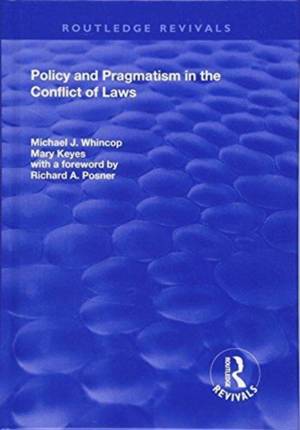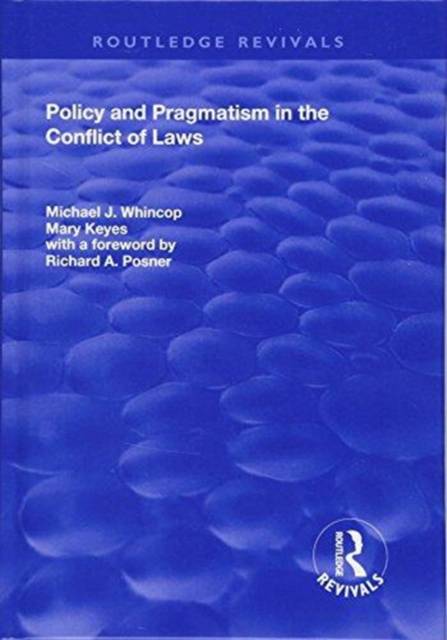
- Afhalen na 1 uur in een winkel met voorraad
- Gratis thuislevering in België vanaf € 30
- Ruim aanbod met 7 miljoen producten
- Afhalen na 1 uur in een winkel met voorraad
- Gratis thuislevering in België vanaf € 30
- Ruim aanbod met 7 miljoen producten
Zoeken
€ 108,45
+ 216 punten
Omschrijving
This title was first published in 2001. After languishing for decades in the domains of rigid doctrinalism and confusing theory, the conflict of laws is increasingly being recognized as an important area of law to a global community. To demonstrate its importance, Michael Whincop and Mary Keyes transcend the divide between the English pragmatic tradition and the circularity of American policy-based theory. They argue that the law governing multistage conflicts can minimize the social costs of litigation, increase the extent of co-ordination, facilitate private ordering and limit regulatory monopolies and cross-border spillovers. Pragmatic in outlook and economic in methodology, they pursue these themes across a broad range of doctrinal issues and offer valuable links to parallel analyses in domestic contexts.
Specificaties
Betrokkenen
- Auteur(s):
- Uitgeverij:
Inhoud
- Aantal bladzijden:
- 246
- Taal:
- Engels
- Reeks:
Eigenschappen
- Productcode (EAN):
- 9781138703315
- Verschijningsdatum:
- 22/11/2017
- Uitvoering:
- Hardcover
- Formaat:
- Genaaid
- Afmetingen:
- 152 mm x 219 mm
- Gewicht:
- 619 g

Alleen bij Standaard Boekhandel
+ 216 punten op je klantenkaart van Standaard Boekhandel
Beoordelingen
We publiceren alleen reviews die voldoen aan de voorwaarden voor reviews. Bekijk onze voorwaarden voor reviews.











